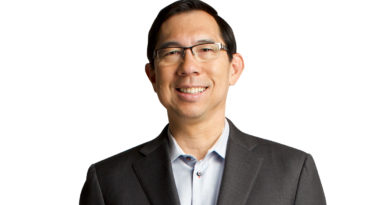Finding Your Greener Pasture
By Lynda C. Corpuz
Knowing the hot job markets was the first step we cited in 10 Steps to OFW Riches (July-August OFW issue). But while we identified for you the top destinations and current opportunities, there are still other factors to consider in finding your own greener pasture:
Research about your preferred destination and prepare the documents required. This is obvious, but it is still important that you are going to work in a country that welcomes you, particularly your skills, and offers career opportunities. Completing papers though is time-consuming, and on occasion, nerve-wracking. Research about the country where you want to work, know if you either need a working permit or visa or residency visa, contact the nearest embassy, and scour the Web to give you an idea of the paperwork you will need to complete.
Identify what you want to and can do. Others go abroad and hop from one casual job to another, like bar tending or shop keeping. Before you jump on that plane, list down all your skills and work experience, and check if your preferred country is looking for foreign workers with your skill set. Right now, the demand is for jobs in cruise lines, hotel and food services, construction, education, and healthcare, according to the book Finding Work Abroad: A step-by-step guide.
Click the mouse. While it is easier to search for overseas jobs through the Internet, job portals like JobsDB and Jobstreet, among other similar Web sites, do not guarantee your employability, as they are solely designed for employment searching, recruitment systems, and the application process. You can also check online editions of newspapers globally that also post job vacancies. Be cautious of bogus Web sites of illegal recruiters, which victimize people by collecting placement fees for non-existent jobs, warns Carlos Canaberal, Philippine Overseas and Employment Administration (POEA) planning and policy division chief.
POEA, through its Web site (www.poea.gov.ph), can also help you check if there are job orders placed by the country of your choice. You can search for job orders by position, country, and agency, gathered from the licensed recruitment agencies which have job orders for the last two years, and remain such after deducting the number of applicants whose papers were already for processing at the POEA, explains Carlos. “It’s important that an applicant verifies with the agency if the job order is still active or not,” Carlos reminds. Apart from local employment agencies, you can also contact international recruitment agencies, or those specializing in the job you are aiming. If you already have a company in mind in the country of your choice, apply through its Web site and fill out the necessary forms and answer inquiries (mostly pertaining to your suitability to work abroad, like if you have a passport and visa).
Get qualified. Getting qualified or gaining additional skills will be handy if you seek employment abroad. For instance, passing TOEFL or the Test of English as a Foreign Language is now not only required for non-native applicants at many English-speaking colleges and universities; even government agencies, businesses, and scholarship applications may require TOEFL, so you might want to consider taking this one. Alternatively, consider TEFL, or teaching English as a Foreign Language, which you could do while waiting for the job you really want.
Network actively. Think if you know people in your country (or better yet city) of choice, as their advice and assistance might help you get acclimatized to living and working there. It is said that expatriate Filipinos are eagerly helpful to their kababayans, so surely you will chance upon one to help you, like introducing you to employment contacts. Once you’re settled, be generous also to extend the same assistance to those who might need your help.
Recognize the cost of moving and working abroad. On top of work-related expenses you will be incurring, factor in also the initial outlay you will be needing, say for accommodation. On top of sending money back to your family in the Philippines, you should always have an amount reserved for you, like for a flight home, just in case you realize living and working overseas is not for you.




Can anybody give a briefing on the working and living condition at Papua New Guinea? Some of the questions I want to be clarified about are:
– Population of Filipino workers at PNG?
– What are the nature of jobs that Filipinos apply for at PNG?
– Prices of commodity goods in PNG as compared at Phil?
– Safety, security and crime rate at PNG/
– Adjustment of Filipinos on the cultural difference?
– Availability of food, medicines, clean water, recreational, transportation and communication facilities in PNG
– Treatment of PNG to expat or foreign nationals
– Others
Thanks.